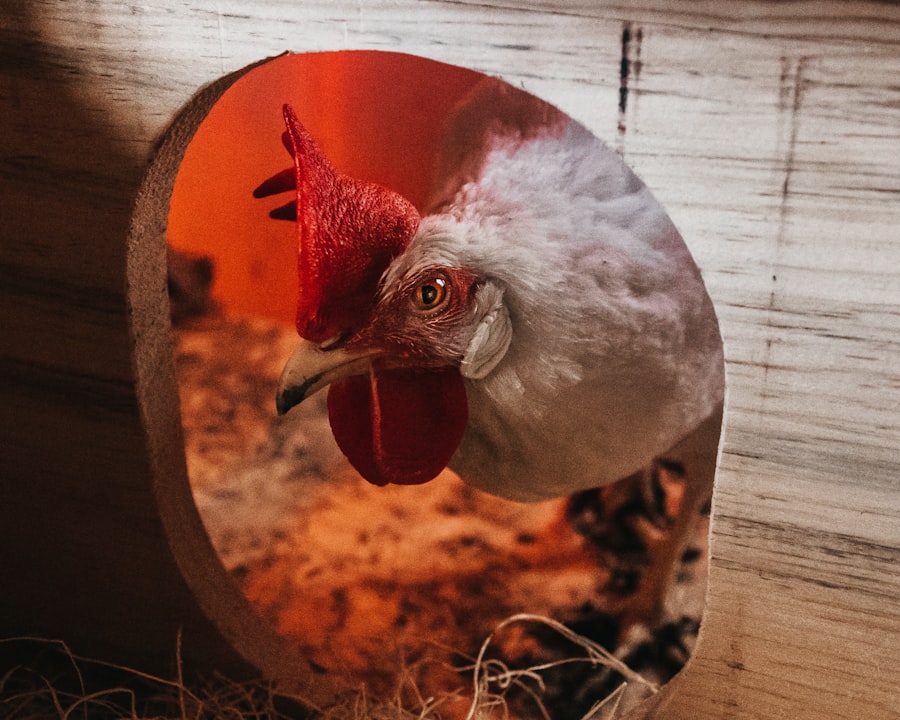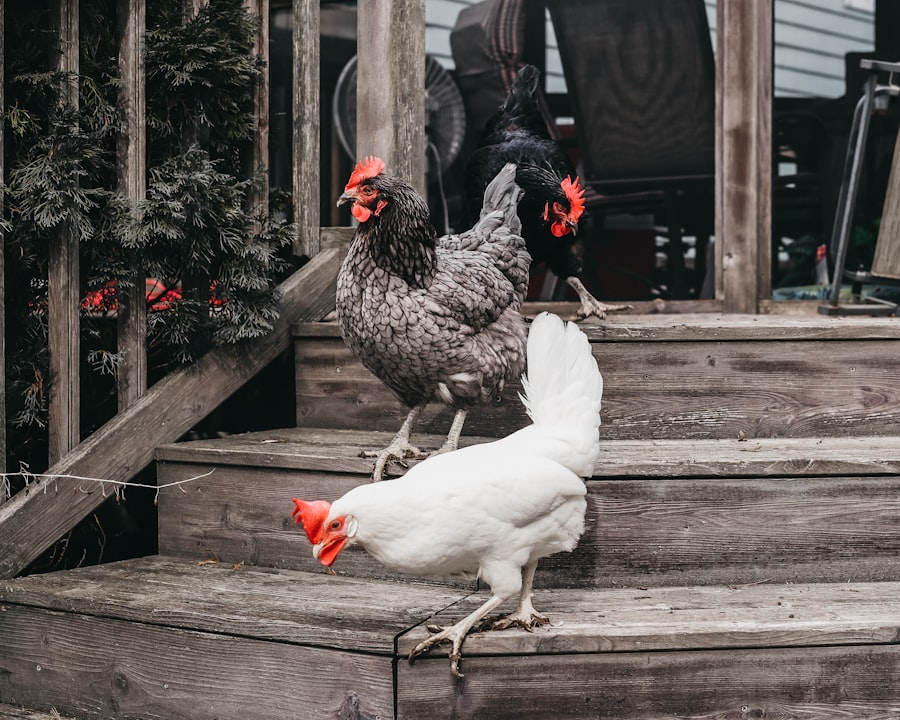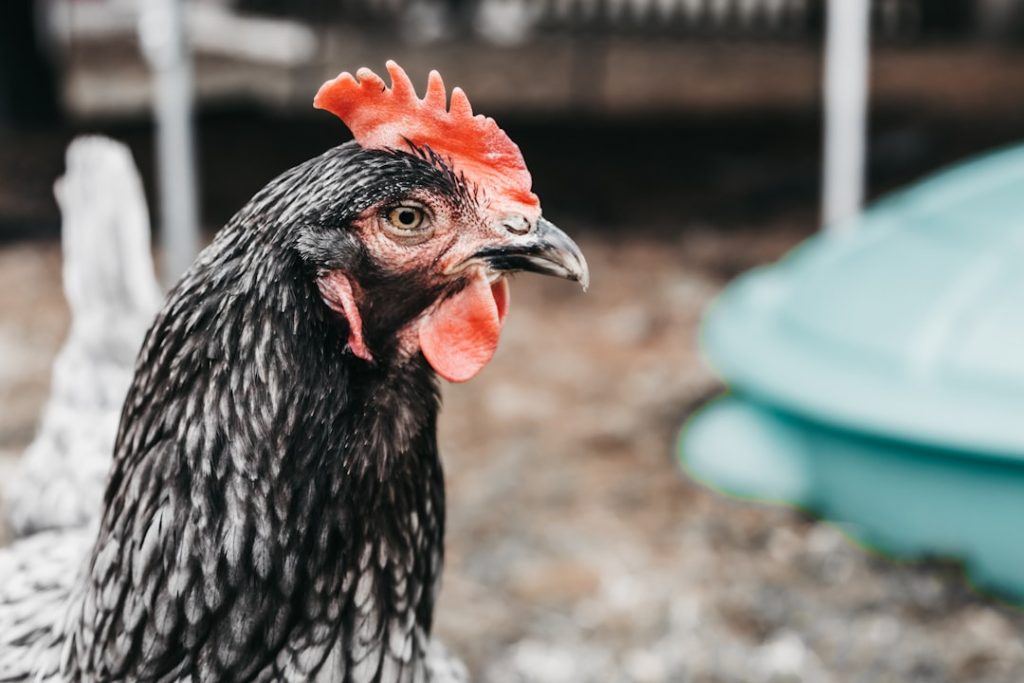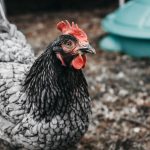When selecting chicken breeds for a backyard flock, several factors should be considered. Climate is a crucial aspect, as different breeds are adapted to various weather conditions. In colder regions, cold-hardy breeds like Plymouth Rock or Orpington may be suitable, while heat-tolerant breeds such as Leghorn or Sussex are better suited for warmer climates.
The intended purpose of keeping chickens is another important consideration. For egg production, breeds known for high egg-laying capacity, such as Rhode Island Red or Australorp, are recommended. If meat production is the primary goal, fast-growing and large-sized breeds like Cornish Cross or Jersey Giant are preferable.
Dual-purpose breeds, such as Barred Plymouth Rock or Wyandotte, can provide both eggs and meat, making them versatile choices for backyard flocks.
Table of Contents
- 1 Building a suitable coop
- 2 Providing proper nutrition and care
- 3 Ensuring a safe and secure environment
- 4 Managing egg production
- 5 Dealing with common health issues
- 6 Integrating chickens into a sustainable lifestyle
- 7 FAQs
- 7.1 What are the benefits of keeping chickens in Australia?
- 7.2 What are the legal requirements for keeping chickens in Australia?
- 7.3 What do chickens need to thrive in Australia?
- 7.4 What are some common health issues for chickens in Australia?
- 7.5 How can I protect my chickens from predators in Australia?
Key Takeaways
- Consider the climate, space, and purpose when choosing the right breed of chickens for your needs
- Build a coop that provides adequate space, ventilation, and protection from predators
- Provide a balanced diet, clean water, and regular health checks to ensure proper nutrition and care for your chickens
- Secure the coop with sturdy fencing, locks, and regular maintenance to ensure a safe environment for your chickens
- Manage egg production by providing nesting boxes, collecting eggs regularly, and ensuring proper lighting and temperature control
Building a suitable coop
Size Matters
When building a coop, one of the most important factors to consider is the size of the coop. You’ll want to ensure that it’s large enough to comfortably accommodate your flock. As a general rule of thumb, you’ll need at least 2-3 square feet of space per chicken inside the coop, and at least 8-10 square feet of space per chicken in the outdoor run.
Design and Construction
In addition to size, the design and construction of the coop are crucial. The coop should be well-ventilated to ensure good air circulation, but also provide protection from drafts and predators. It should also be easy to clean and maintain, with features such as removable roosts and nesting boxes.
Safety and Security
Finally, you’ll want to make sure that the coop is secure and predator-proof, with sturdy walls and a secure door that can be locked at night. This will ensure that your chickens have a safe and comfortable living environment. By taking these factors into consideration, you can create a coop that meets the needs of your backyard flock.
Providing proper nutrition and care

Proper nutrition and care are essential for keeping your backyard flock healthy and happy. When it comes to nutrition, it’s important to provide your chickens with a balanced diet that meets all of their nutritional needs. This typically includes a commercial feed that is specifically formulated for laying hens, as well as access to fresh water and occasional treats such as fruits and vegetables.
You may also choose to supplement their diet with oyster shells or grit to help with digestion and eggshell formation. In addition to nutrition, proper care also includes regular health checks and preventative measures to keep your chickens in good condition. This may include regular inspections for signs of illness or injury, as well as routine vaccinations and parasite control.
It’s also important to provide your chickens with a clean and comfortable living environment, with regular cleaning of the coop and nesting boxes, as well as access to dust baths for natural grooming.
Ensuring a safe and secure environment
Creating a safe and secure environment for your backyard flock is essential for their well-being. This includes protecting them from predators such as foxes, raccoons, and birds of prey, as well as providing them with shelter from extreme weather conditions. To protect your chickens from predators, it’s important to use sturdy fencing and secure locks on the coop door.
You may also want to consider adding motion-activated lights or alarms to deter nocturnal predators. In addition to protection from predators, it’s also important to provide your chickens with shelter from extreme weather conditions. This may include adding insulation to the coop for cold climates, or providing shade and ventilation for hot climates.
You may also want to consider adding features such as windbreaks or rain shelters in the outdoor run to provide additional protection from the elements.
Managing egg production
Managing egg production is an important aspect of keeping a backyard flock of chickens. If you’re primarily interested in egg production, there are several factors to consider in order to maximize your hens’ laying capabilities. First and foremost, it’s important to provide your hens with a balanced diet that meets all of their nutritional needs, including a commercial feed that is specifically formulated for laying hens.
In addition to nutrition, it’s also important to provide your hens with a comfortable and stress-free living environment. This includes providing them with plenty of space in the coop and outdoor run, as well as access to clean nesting boxes where they can lay their eggs in peace. You may also want to consider adding artificial lighting to the coop in the winter months to help stimulate egg production during the shorter days.
Dealing with common health issues

Common Health Issues in Chickens
Some common health issues in chickens include respiratory infections, parasites such as mites or lice, and egg-laying problems like egg binding or soft-shelled eggs.
Prevention is Key
To prevent these health issues, it’s crucial to provide your chickens with a clean and comfortable living environment, as well as regular health checks and preventative measures such as vaccinations and parasite control.
Seeking Veterinary Care
If you do notice signs of illness or injury in your chickens, it’s vital to seek veterinary care as soon as possible to provide them with the appropriate treatment.
Integrating chickens into a sustainable lifestyle
Integrating chickens into a sustainable lifestyle can have numerous benefits for both the chickens and their owners. Chickens can help reduce food waste by eating kitchen scraps and providing high-quality fertilizer for gardens. They can also help control pests such as slugs and snails in the garden, reducing the need for chemical pesticides.
In addition to their practical benefits, chickens can also provide companionship and entertainment for their owners. Many people find joy in watching their chickens scratch and peck around the yard, or listening to their cheerful clucking as they go about their daily activities. Overall, integrating chickens into a sustainable lifestyle can be a rewarding experience that provides numerous benefits for both the chickens and their owners.
If you’re interested in learning more about keeping chickens, you might also want to check out this article on how to build an A-frame chicken coop. It’s a great resource for creating a comfortable and functional living space for your feathered friends.
FAQs
What are the benefits of keeping chickens in Australia?
Keeping chickens in Australia can provide a sustainable source of fresh eggs, natural pest control in the garden, and a source of organic fertilizer for the soil.
What are the legal requirements for keeping chickens in Australia?
The legal requirements for keeping chickens in Australia vary by state and local council. Generally, there are regulations regarding the number of chickens allowed, coop size and cleanliness, and distance from neighboring properties.
What do chickens need to thrive in Australia?
Chickens in Australia need a secure and predator-proof coop, access to fresh water, a balanced diet of feed and kitchen scraps, and space to roam and forage.
What are some common health issues for chickens in Australia?
Common health issues for chickens in Australia include mites and lice, respiratory infections, and egg-laying problems. Regular health checks and proper hygiene can help prevent these issues.
How can I protect my chickens from predators in Australia?
To protect chickens from predators in Australia, it’s important to secure the coop with strong fencing, lockable doors, and predator-proof mesh. Additionally, keeping chickens in a secure coop at night can help prevent attacks from nocturnal predators.
Meet Walter, the feathered-friend fanatic of Florida! Nestled in the sunshine state, Walter struts through life with his feathered companions, clucking his way to happiness. With a coop that’s fancier than a five-star hotel, he’s the Don Juan of the chicken world. When he’s not teaching his hens to do the cha-cha, you’ll find him in a heated debate with his prized rooster, Sir Clucks-a-Lot. Walter’s poultry passion is no yolk; he’s the sunny-side-up guy you never knew you needed in your flock of friends!







